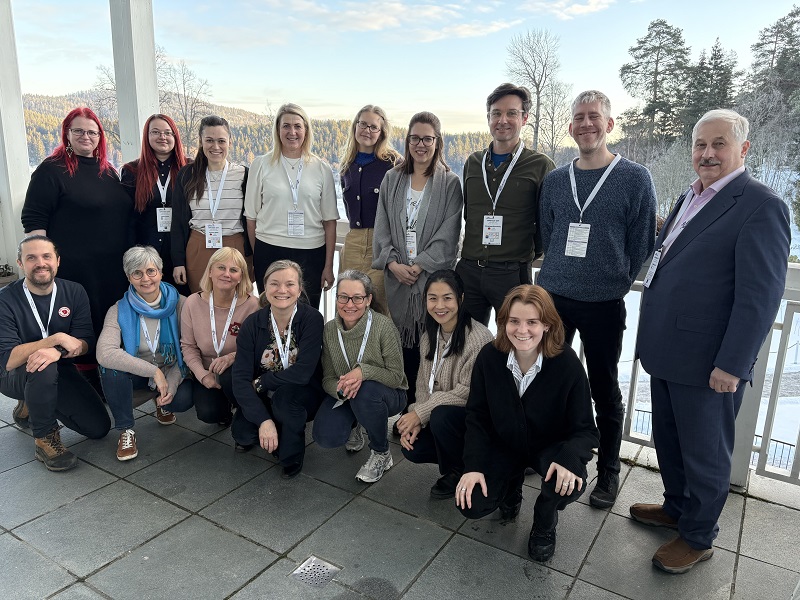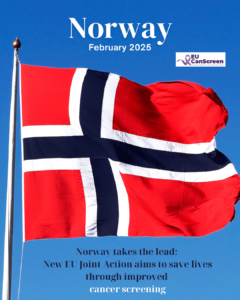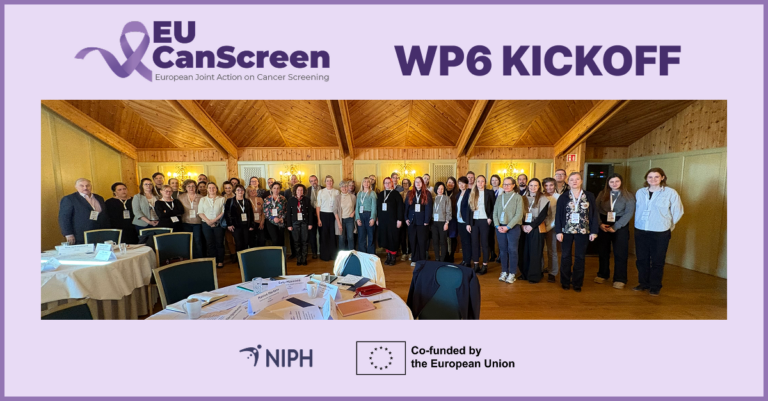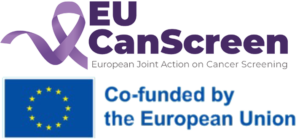Oslo, Norway, 29.01.2025 – 31.01.2025
WP6 KICKOFF - Norway takes the lead: New EU Joint Action aims to save lives through improved cancer screening
EUCanScreen is a comprehensive European Joint Action working to reduce the burden of cancer across all social groups and ensure equal access to screening programmes throughout Europe. As part of the EU4Health initiative, funded by the European Commission, EUCanScreen seeks to enhance existing screening programmes for breast, cervical, and colorectal cancer, while facilitating the implementation of new programmes for lung, prostate, and stomach cancer. EUCanScreen is organised into 11 work packages, each addressing different aspects of cancer screening.
Addressing barriers to screening: Norway’s leadership in WP6
Work Package 6 (WP6), led by the Norwegian Institute of Public Health (NIPH), is central to tackling the barriers that hinder participation in cancer screening programmes across Europe. These barriers include systemic, individual, linguistic, and cultural obstacles, which disproportionately affect vulnerable groups, such as immigrants, intellectually disabled or gender diverse individuals. WP6 collaborates with 26 EU countries to identify these challenges and develop a comprehensive toolkit of best practices for health authorities and policymakers, aimed at improving participation in screening and reducing inequalities in healthcare access.
As part of WP6, Task 6.4 focuses specifically on overcoming linguistic and cultural barriers for immigrant communities. By collaborating with nine European countries, Task 6.4 aims to create and test culturally tailored informational materials and communication strategies, ensuring that cancer screening information reaches all communities effectively.
Kick-off in Norway
Organised by Mari Nygård, Hilde Sagedahl Underthun, Margrethe Meo, and Eilen Aalerud from the Cancer Registry of Norway at NIPH, the joint kick-off event for WP6 and Task 6.4 successfully brought together task leaders and representatives from several partner organisations. Meetings were held in Norway over three intensive days, from 29 to 31 January 2025. Around 50 participants attended in person from 18 EU countries, including Belgium, Denmark, Estonia, Finland, France, Greece, Ireland, Iceland, Latvia, Lithuania, the Netherlands, Norway, Romania, Sweden, Germany, Ukraine, Hungary, and Austria. Additional participants joined virtually from Italy, Slovakia, Slovenia, and Czechia.
Serving as a collaborative working meeting, the kick-off encouraged active contributions in workshops, fostering agreement on the way forward and ensuring commitment to deliverables. Task leaders presented the status of each task, discussed existing materials, and explored the use of artificial intelligence in health communication. EUCanScreen Joint Action coordinators, along with leader Prof. Marcis Leja from the University of Latvia, were also in attendance, contributing valuable insights to the overarching topics discussed during the meeting.

Task 6.4: Breaking barriers for immigrants
A key focus of the meeting was the workshops under Task 6.4, where participants from nine countries tackled challenges in delivering cancer screening information to immigrant populations. These discussions highlighted disparities in screening participation among immigrants and the need for culturally and linguistically relevant health communication.
Group activities explored:
- -Developing pilot tests for tailored campaigns in selected countries.
- -Designing materials that resonate with diverse immigrant groups.
- -Strategies to collaborate with immigrants and healthcare professionals to ensure clear, accessible communication.
By the end of the workshops, participants reached a consensus on the way forward, including plans for pilot testing and the development of a shared best practice toolkit.
Workshops, expert contributions, and networking
The WP6 meeting also featured lectures and workshops that provided fresh perspectives on health communication. Professor Øyvind Ihlen from the University of Oslo, specialising in media and communication, delivered a lecture on building trust in health information, emphasising the importance of clear and credible messaging. Meanwhile, computer scientists Thorvald Ballestad and Anders Aamodt from Simula Research Laboratory presented possibilities to develop applications of large language models for gathering documentation to inform health policy decisions related to cancer screening.
The venue, located in the scenic outskirts of Oslo, facilitated productive workshops and fostered networking among participants, offering an ideal setting for both formal discussions and informal collaboration.
The road ahead
The kick-off marked the beginning of a four-year intensive collaboration under EUCanScreen. WP6, including Task 6.4, will continue to work on analyses, toolkits, and strategies to address the barriers identified. By strengthening health preparedness and reducing inequalities, this initiative will help optimise cancer screening participation in Europe.
EUCanScreen and its significance
This initiative is a vital part of the EU’s broader strategy to combat cancer and represents a step towards better patient care and research collaboration across Europe. Through close cooperation and joint efforts, EUCanScreen will contribute to lasting improvements in early cancer detection and treatment, as well as the healthcare system.
Subscribe to our newsletter to get news and updates.
Subscribe to our newsletter to get news and updates.

The general objective of EUCanScreen is to assure sustainable implementation of high-quality screening for breast, cervical and colorectal cancers, as well as implementation of the recently recommended screening programs – for lung, prostate and gastric cancers. EUCanScreen will facilitate the reduction of cancer burden and achieving equity across the EU.
This project has received funding from the European Union’s EU4HEALTH Programme under the Grant Agreement no 101162959













